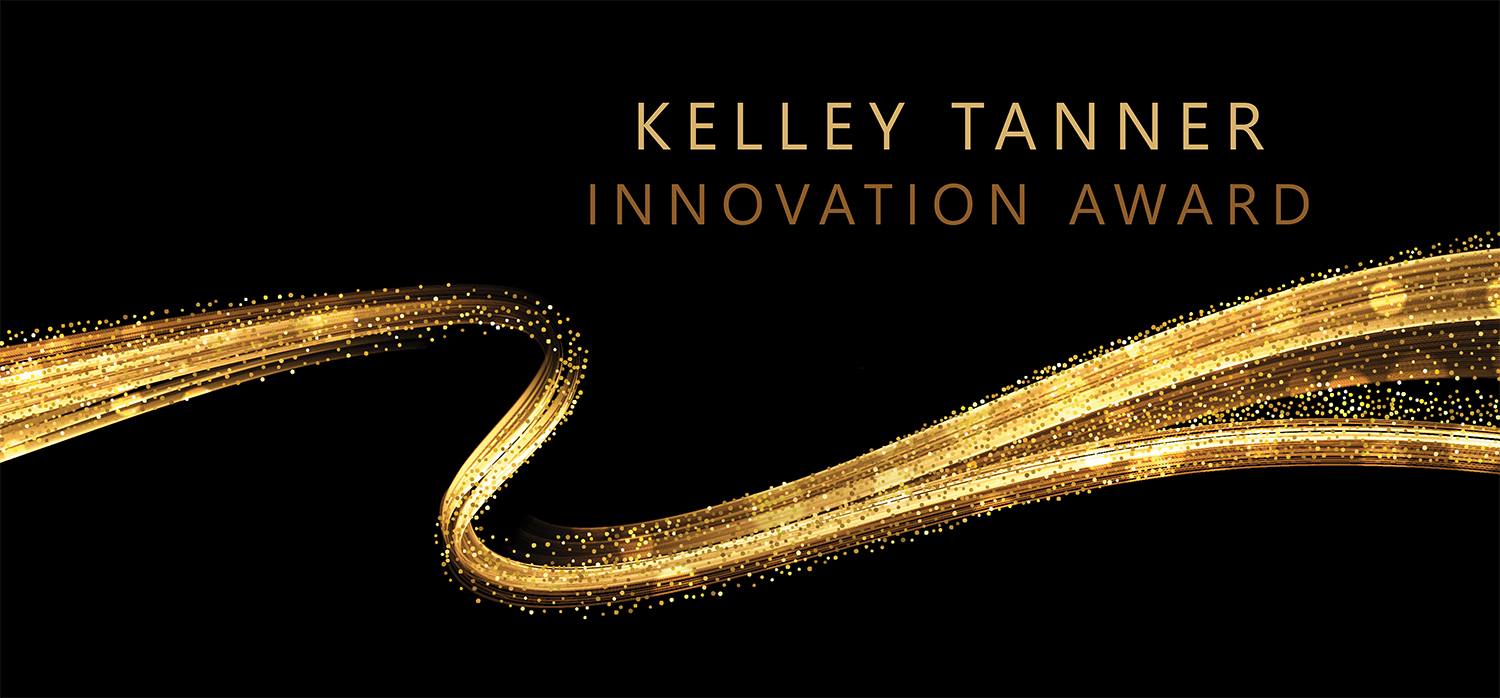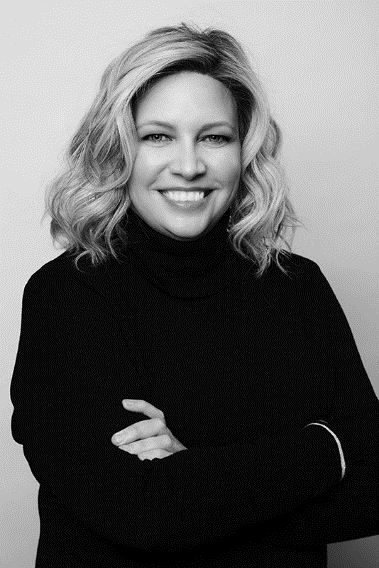
The Award

The Kelley Tanner Innovation Award showcases ideas and initiatives that explore and implement inventive approaches to navigating complex and
changing external contexts for teaching, learning, supporting and operating educational facilities.
This award is designed to showcase and celebrate – and even stimulate – innovative and pioneering practices that enhance learning, our profession, and the communities we serve.
In her career as an educational facility planner and in her role as A4LE International Board Member, Kelley Tanner rigorously supported innovation. She believed in the need to innovate to thrive in a world shaped by shifting priorities, politics, research, and technological advances. Her personal and professional values were intertwined as she sought to positively affect the lives of youth through both ideas and actions. Kelley lived graciously and courageously with cancer until the very end, inspiring and teaching us along the way. A4LE shares her commitment to innovation, and we are excited to support her legacy through the Kelley Tanner Innovation Award.
We invite innovators at all levels to share your ideas and achievements!
Kelley Tanner
Kelley Tanner focused on students as part of a larger desire to help people. She believed that giving each student what they need not only
helped them but improved the entire community. Kelley improved
Learning Environments for many students and communities, despite daunting challenges and constraints.
In addition to tireless efforts in the realm of educational facility planning, Kelley served on local, regional A4LE chapter leadership teams. She was a sitting member of the A4LE International Board of Directors when she passed.
As a passionate Educational Facilities Planner, Kelley Tanner was both visionary and realistic. She actively sought better ways to help all children, and, thus, benefit everyone. This award is intended to recognize individuals or teams of any age or organization, including students, parents, schools, and private companies, who have created an innovation that advances her values. Those values include:
Students & Community: Kelley focused on students as part of a larger desire to help people. She believed that giving each student what they need not only helped them but also improved the entire community. A true understanding of student needs can inspire innovation.
Equity & Opportunity: Kelley was a pragmatic dreamer. She believed that equity was not only a moral and ethical necessity, but also a highly functional one. She sought those battles that were “big enough to matter and small enough to win”. All students deserve opportunities to learn, grow, dream, and succeed. All means all.
Service, Selflessness & Integrity of Leadership: Kelley saw ethical behavior both as a fundamental requirement and means to achieve lasting results. While fearlessly volunteering for A4LE, she also served her local public school district, and selflessly mentored high school students who simply needed a caring adult. Her participation, whether rallying communities, leading organizations, or offering her shoulder, is clear evidence of her integrity and commitment to action.
A Vision of What's Possible: Kelley improved Learning Environments for a wide range of students and communities, finding creative workarounds to often daunting challenges and constraints. She leveraged student voices to generate fresh and actionable solutions to complex problems.
Research and Fact-based Decisions: Kelley was insatiably curious and had a deep respect for the power of research to inform decision-making. She recognized the need to share knowledge and research in accessible, understandable, and even delightful ways. Kelley was responsible for the design of hundreds of materials developed and published by Getting Smart, a media-based community that focuses on innovations in learning.
The Criteria
The award is intended to interpret innovation broadly and is receptive to a wide range of possibilities. Jurists will use the responses to the questions
below to evaluate submittals on how effectively the innovation advances
any or all of Kelley’s values. These questions loosely follow the full cycle of stages of an innovation:
CONCEPT (Inspiration)
- What need inspired your innovation and how does it help students and the community?
VALUE (Development)
- What educational environment planning opportunities does your innovation address?
- What are the cost impacts of implementing the innovation? How can costs be mitigated for underserved communities?
DELIVERY (Implementation)
- How have you shared and/or communicated your innovation and made it available to those who need it?
- How have you balanced personal and professional goals with implementation of the innovation?
IMPACT (Evaluation)
- Who benefits from your innovation and how do you define and measure that impact?
- What success has your innovation achieved?
- What is the realistic potential for expanding its impact?
It is understood that not every notable innovation will have completed every stage. An innovation that is still in an early stage may nonetheless be worthy of recognition. However, the submittal should respond to questions in all four stages, illustrating connections to Kelley’s values wherever applicable. If every stage has not yet been completed, please describe how you plan to address later stages (e.g., What evaluation criteria will you use once the innovation has been implemented?).
Submittal Requirements
Individuals or groups submission must be received by the deadline of the
award year. Submission shall be a single digital PDF of no more than 20 pages. Multi-media attachments are allowed but not required. Provide your submission to Rain Maldonado (
[email protected]).
GENERAL INFORMATION – Title of the innovation, and date submitted. Applicant name(s), school/company, title, email and telephone number.
NARRATIVE – A short (600 words or less) description of your innovation.
VALUE ALIGNMENT – Written response to the eight questions above (if a particular question is not applicable to your innovation, please explain).
FEES – For the inaugural year of this award, all submissions will be accepted without entry fees.
OPTIONAL ADDITIONAL INFORMATION – (in addition to 20-page limit).
ENDORSEMENTS – Attach up to three letters of endorsement.
SUPPORTING DOCUMENTATION – Any additional information that strengthens your submittal, including photographs, graphics, findings, research, references, etc.
Recognition
Recipients of the Innovation Award may be recognized in one of the following three Award Categories, however the Impact Award is the winning category.
Impact Award
– The highest honor for an innovation with proven impact.
Best New Initiative
– Recognition for an as-yet unproven innovation.
Most Valuable Player
– Recognition of an individual whose role in the innovation was critical to its development and/or success.
A4LE in collaboration with the Kelley Tanner Innovation Award Committee will select the awardee(s) prior to the LearningSCAPES Conference of the award year.
What to Expect:
- Award recipient(s) will be notified directly by letter from the Kelley Tanner Innovation Award Committee.
- The Impact Award is the highest award and recipient(s) will travel to the A4LE LearningSCAPES International Conference to accept the award and be invited to present the innovation. Innovation will be published on the website. (Stipend for travel/expenses of $2,000 regardless of number of team members). The individual or small group awardee/s may also be honored at their Regional Conference.
- Impact Award recipient(s) will be invited to present / share an update at the following year’s LearningSCAPES Conference (no stipend or travel costs covered).
- A plaque will be provided to the Impact Award recipient(s), the Best New Initiative and MVP winners will receive website recognition and certificates.
- Award recipient(s) may be asked to serve on the Kelley Tanner Innovation Award Committee for 2 years following their nomination.